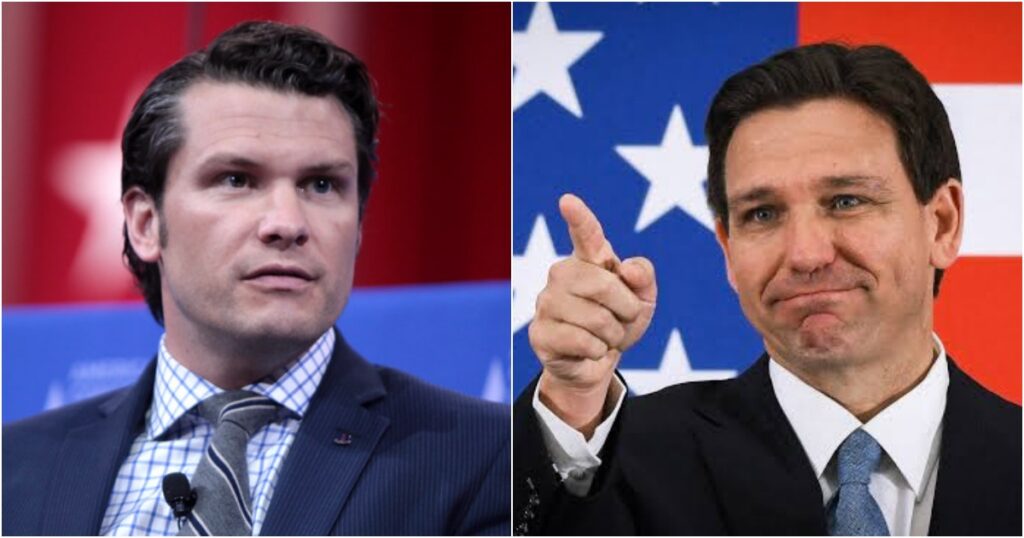Following reports that President-elect Donald Trump is contemplating a significant shift in his cabinet, the potential replacement of Pete Hegseth as Secretary of Defense is generating buzz. Hegseth, a former Fox News personality and decorated Army veteran, has found himself embroiled in controversy due to allegations of past sexual and workplace misconduct, as well as financial impropriety. These issues are raising eyebrows regarding his viability for Senate confirmation. Sources close to the transition reveal that Trump is eyeing Florida Governor Ron DeSantis as a possible successor. The speculation gained traction following both individuals attending a memorial service for fallen law enforcement officers in Florida, signaling their camaraderie.
As Trump weighs his options, particular attention is being paid to the sentiments of key Senate Republicans, many of whom have been hesitant to support Hegseth’s nomination. Notably, at least six GOP senators—dubbed “RINOs” (Republicans In Name Only)—have voiced doubts about backing Hegseth. This group includes influential figures such as Senators Susan Collins, Lisa Murkowski, John Curtis, Lindsey Graham, Mitch McConnell, and John Thune. Their reservations add pressure on Hegseth as he tries to navigate this precarious situation and shore up support within the Senate.
In response to mounting concerns, Hegseth has focused on engaging with Senate Republicans to discuss pertinent defense issues such as recruitment crises, acquisition reform, and national security. His social media activity reflects his attempts to maintain a public perception of a productive engagement with other lawmakers, including a recent tweet highlighting a meeting with Senator Ted Budd of North Carolina. Hegseth is actively trying to portray himself as a committed candidate for the Defense Secretary position despite increasing scrutiny. His efforts have included public interactions with supportive GOP senators who have expressed confidence in his candidacy.
Despite the hurdles that Hegseth faces, several Republican senators are rallying around him, emphasizing his military expertise and potential as the head of the Defense Department. Some senators assert that Hegseth is primed to empower the military and serve effectively, contrasting his vision with what they term a politicized environment in Washington. Senator Bill Hagerty reinforced this notion, citing the importance of depoliticizing the military and prioritizing service members’ duties. Additionally, Senator John Cornyn publicly endorsed Hegseth’s candidacy, stating that the Pentagon is in need of an overhaul, and Senator Tommy Tuberville remarked positively on Hegseth’s prospects.
Meanwhile, Ron DeSantis emerges as a formidable alternative. As a veteran of the Navy Judge Advocate General and a rising star in conservative politics, his tenure as Florida’s governor has been marked by a solid commitment to military and law enforcement communities. DeSantis’s experience and stance on conservative issues have garnered him national recognition, notably during his campaign for the presidency against Trump. The dynamic between Trump, Hegseth, and DeSantis is underscored by a shifting political landscape as party alliances and personal ambitions come into play.
As this situation develops, it remains unclear how Trump will navigate the potential political fallout from either maintaining Hegseth’s nomination or opting for DeSantis. The decision will require careful consideration of both the growing pressures from within the Senate and the broader implications for his administration’s strategy moving forward. In the coming weeks, observers will closely watch how this cabinet shuffle unfolds, as the stakes for leadership in the Defense Department touch upon crucial issues of national security and military morale amidst a politically charged environment.

